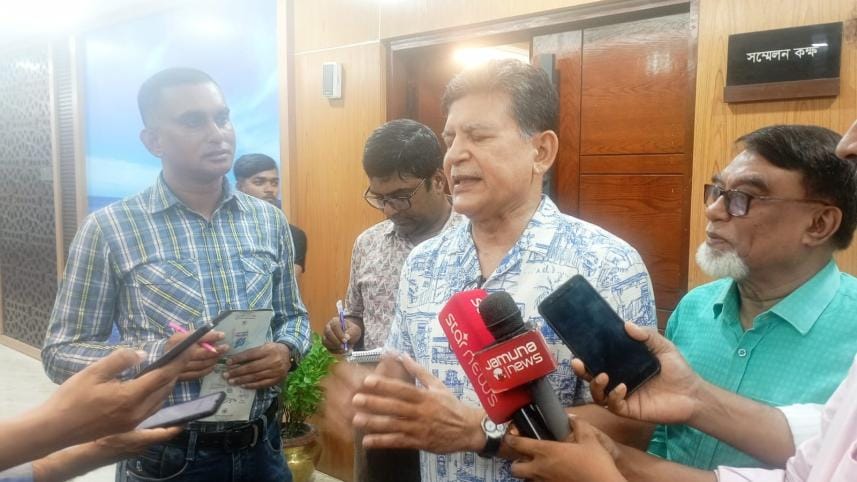Taskforce proposes new name, leadership model for BBS

An independent taskforce on strengthening the Bangladesh Bureau of Statistics (BBS) has recommended a new name, leadership, and oversight model for the state agency to safeguard the independence of its statistical activities.
The taskforce's report, submitted to Planning Adviser Wahiduddin Mahmud yesterday, proposed renaming the BBS as Statistics Bangladesh (StatBD) and redesignating the head of the agency from director general to Chief Statistician, a special-scale post.
Currently, only government officials are eligible to head the BBS. Under the taskforce's proposal, people from outside the government can also apply for it.
The taskforce, chaired by Hossain Zillur Rahman, executive chairman of the Power and Participation Research Centre (PPRC), also recommended the formation of a seven-member Trust and Transparency Council of Statistics (TTCS).
According to the proposal, the council will work to ensure the integrity and oversight of BBS operations, which includes overseeing annual performance audits, expenditure reviews, and the selection of the Chief Statistician.
"We have proposed a bold, timely, and realistic reform package," Rahman told reporters after a meeting at the planning ministry chaired by the planning adviser.
"The taskforce was formed to make Bangladesh's statistics more visible in terms of quality and transparency. Our report outlines how essential institutional processes can be clearly structured," he added.
However, the taskforce did not recommend the formation of an independent Statistical Commission, a long-standing demand from stakeholders, including government officials and experts.
Responding to a question on this, Rahman said, "It is challenging to answer such a one-dimensional question. That was not part of our initial mandate."
He added that the taskforce's focus was on raising the quality and transparency of Bangladesh's statistics to global standards, rather than forming a commission. The report instead sets out specific measures to protect the independence of statistical work, from preparation and analysis to publication, through institutional and legal safeguards.
Planning Adviser Mahmud made a similar comment, stating, "There are many definitions of independence, and that needs to be understood. Simply forming a commission does not solve everything. We already have commissions such as the Anti-Corruption Commission and the Human Rights Commission."
He added, "The real issue is not the commission itself, but transparency and accountability in its work.
"Do those leading it have the necessary competence? To whom are they accountable, and do they have the capacity to deliver? Within this lies the question of independence, but at what level and in what manner?"
The report, he said, proposes realistic steps to address these elements.
The taskforce also recommended amending the Statistics Act 2013 to safeguard the proposed body's autonomy in technical decisions, such as data validation and release, thereby protecting official statistics from administrative or political interference.
To tackle chronic institutional weaknesses, the report suggests doubling the number of organisational wings from eight to 16 and creating 437 new upazila-level posts to strengthen grassroots data collection.
It also proposes unifying cadre and non-cadre services under a single professional track to improve career progression for statisticians.
On financial reforms, the taskforce calls for budgetary autonomy with dedicated revenue funding for core surveys and an immediate Tk 50 crore allocation to stabilise operations.



 For all latest news, follow The Daily Star's Google News channel.
For all latest news, follow The Daily Star's Google News channel.
Comments